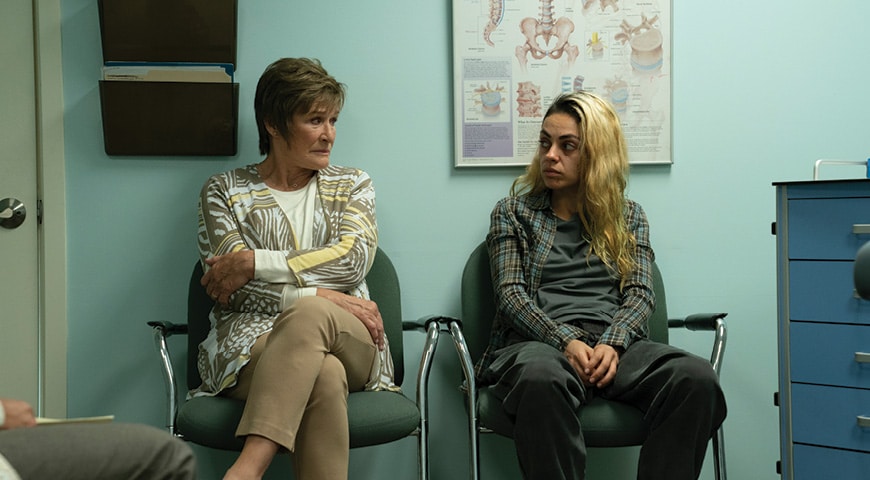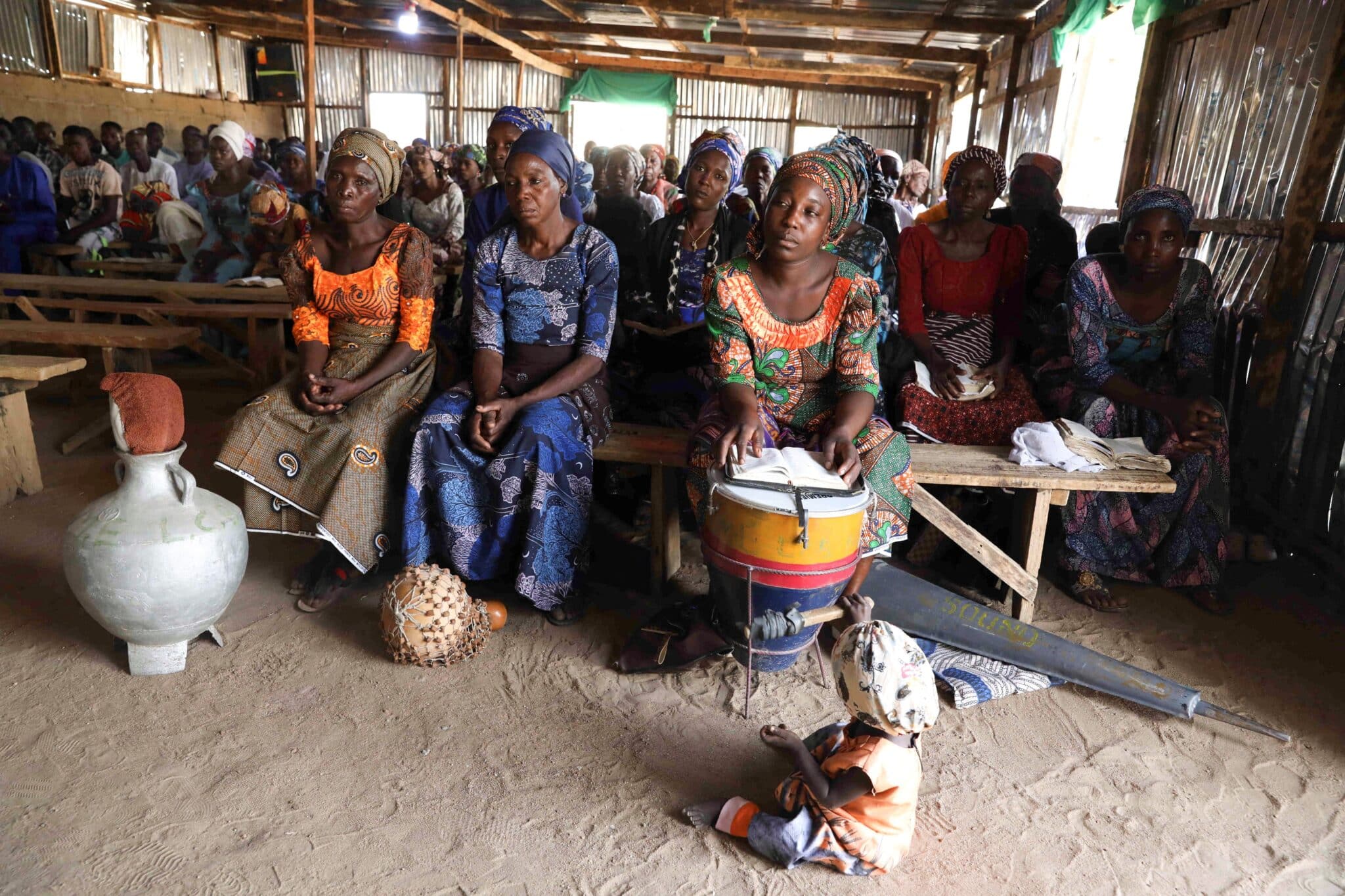Four Good Days
One day, Molly (Mila Kunis) knocks at the door of her mother, Deb (Glenn Close), and stepfather Chris (Stephen Root). She is in the midst of withdrawal from heroin—again. Deb refuses to let her in because she has stolen and lied so often over the years. She has been to rehab 14 times since she became addicted to oxycontin, following an accident when she was 17.
But Deb relents and takes her to rehab where, after three days, the doctor tells her about a monthly treatment called an opiate antagonist that will render her brain and body immune to getting high. It is not a cure-all but could be part of the road to sobriety. But Molly must be clean for a week or the treatment could kill her.
Deb—with love, hope, and some distrust—agrees to let her daughter stay with her and Chris so she can have four good days and then begin treatment. But she tells Chris, who has been through this many times before, that she doesn’t know if she even wants to love her daughter anymore.
During the four days, Molly gets to see her two children and her ex-husband, who asks her for painkillers. Deb, who left the family when Molly was young over issues with her former husband, feels guilty about her role in her daughter’s addiction. She lashes out at Chris, who is tired of the dysfunctional dynamic that appears every time Molly shows up. To his credit, he remains supportive.
As the fourth day looms, Molly manipulates and convinces Deb to take a risk that could bring everything crashing down again.
Four Good Days, written by Eli Saslow, is adapted from his 2016 Washington Post article, “How’s Amanda?” The interactions between Deb and Molly are gritty, raw, and& heartbreaking. Close, once again, delivers an award-worthy performance, and Kunis is outstanding as the junkie lying her way to another chance at health and healing.
Rodrigo García directs in a way that breaks your heart but gives hope as well. The film is for addicts and those who love them.
Not yet rated, R‚ Drug use, family dysfunction, lying, graphic withdrawal scenes.
When Hitler Stole Pink Rabbit
It is 1933 in Berlin, Germany. Nine-year-old Anna (Riva Krymalowski) and her older brother, Max (Marinus Hohmann), live a comfortable life with their nonobservant Jewish parents. Just before the election that the parents fear will lead to Hitler’s victory, Dorothea (Carla Juri) tells the children that their father, Arthur (Oliver Masucci), has gone to Prague but will meet them in Switzerland. Critical of Hitler and the Nazis, Arthur is a theater critic who needs to move his family to safety. Anna is allowed to take only one toy with her. She loves her pink rabbit but cannot make up her mind which toy to take.
Once in Switzerland and reunited with Arthur, the refugee family settles in a mountain village where the people speak a Swiss-German dialect. The family adapts to the new language and customs. They learn from a family friend that Nazis came soon after they fled Berlin and emptied the house of all their possessions. When money is short, Arthur and Dorothea go to Paris to seek work. Arthur returns for the children while Dorothea prepares a tiny apartment for them. They learn another language and, for the first time, encounter anti-Semitism.
When Hitler Stole Pink Rabbit is based on part one of the best-selling 1974 memoir written by Judith Kerr. Krymalowski is wonderful in her first feature role. The filmmakers let us see and feel the story of this political refugee family through the character of Anna. In small ways that go right to the heart, the film tells the story of a child’s grief, loss, and fear during the years leading up to the Holocaust.
Not yet rated‚ Mature themes, talk of suicide, anti-Semitism, peril.
The Perfect Candidate
Maryam (Mila Al Zahrani) is a surgeon who works at a clinic outside of Riyadh, Saudi Arabia. Every day she must park her car and cross the unfinished road in front of the clinic to get to work. She applies for a grant to complete the work, but it is denied.
She leaves for a medical conference in Dubai, but she isn’t allowed to board the flight because her travel permit is not accessible online. She must find a male relative to vouch for her. Her widowed musician father is on tour and won’t answer the phone because his daughters cause him anxiety.
Maryam approaches a male cousin who thinks she is there to run for town council. It will be difficult, he tells her, and he signs the application. She explains why she is there, but he does not feel he can help her with her travel issue and hands her the candidate application.
Maryam returns home to tell her sisters Selma (Dae Al Hilali) and Sara (Nora Al Awad) that she is running for office in order to get the road fixed. Together they plan a campaign, trying to avoid the rules and cultural mores that govern women’s behavior.
Directed and cowritten by Haifaa Al-Mansour, the story deals with bias against women but also celebrates their strength as Maryam, her coworkers, and sisters take on challenges to improve the lives of the people.
Not yet rated, PG‚ No objectionable content.








